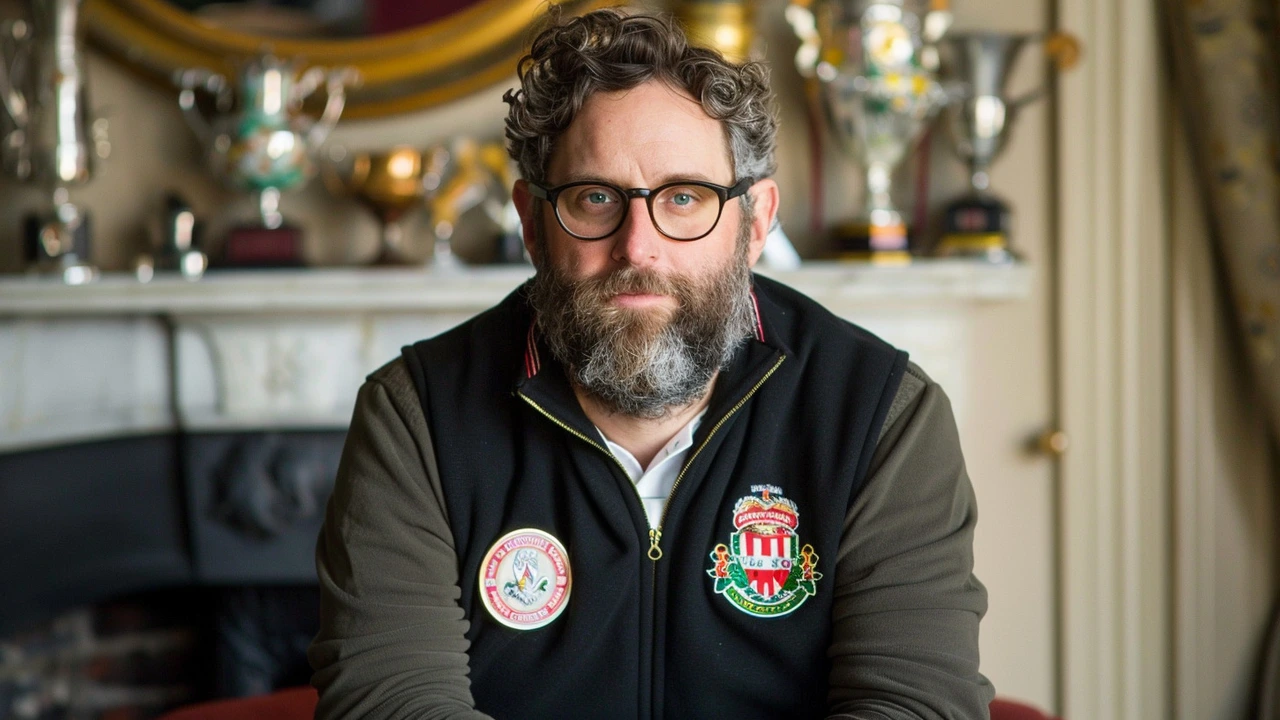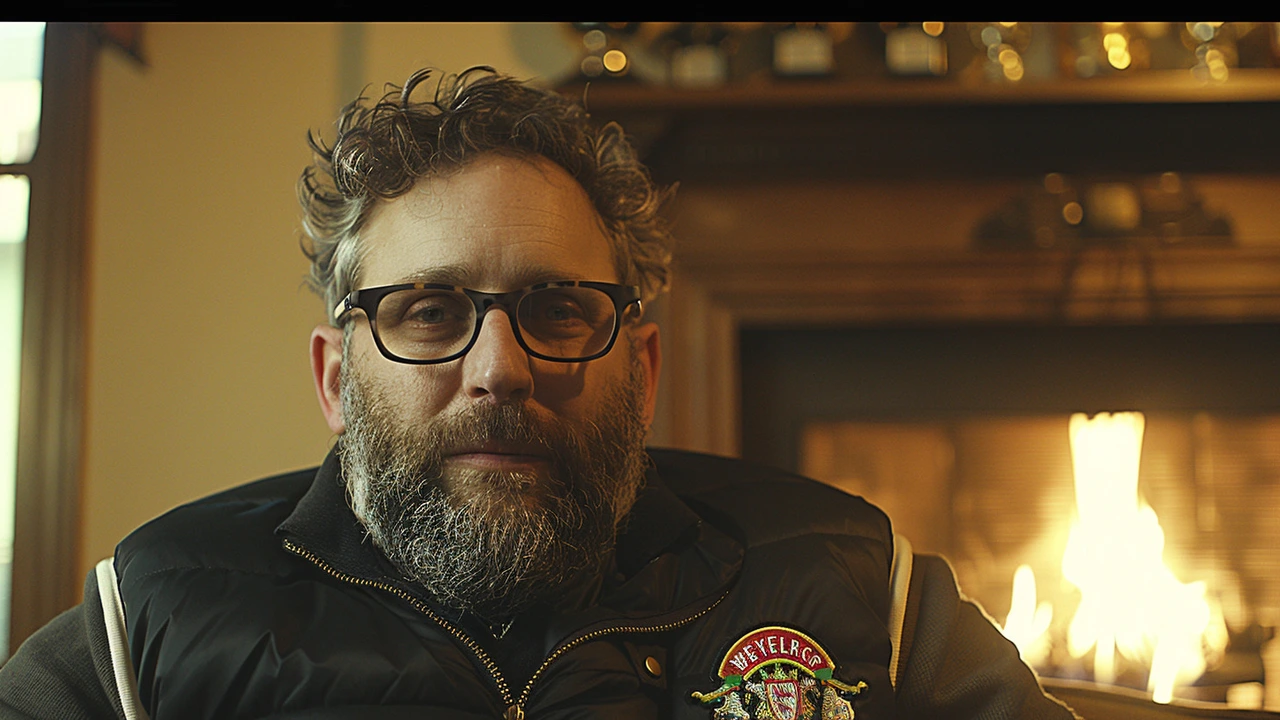The third season of FX’s docuseries 'Welcome to Wrexham' wraps up with Wrexham A.F.C. achieving an extraordinary feat — promotion to League One of the English Football League. This milestone marked their second consecutive promotion under the ownership of Hollywood stars Ryan Reynolds and Rob McElhenney. What started as a seemingly eccentric investment by the duo has turned into a compelling story of triumph, hope, and the power of celebrity influence in sports.
However, success on the field is only part of the narrative. Humphrey Ker, the club’s executive director, emphasized in the season finale that while Wrexham’s meteoric rise has been propelled by the substantial resources and global recognition brought in by its famous owners, the road ahead will be significantly more challenging. As Wrexham moves up the football tiers, the initial advantages of a bigger budget and worldwide attention may start to fade, compelling the club to focus more strategically on longevity and sustainability.
Entering this new phase, Wrexham will need to invest considerably in its infrastructure and player recruitment strategies. Promotion to League One is not just a leap in competition but also an upgrade in the expectations and needs of the club. While the Hollywood glitter has undoubtedly provided a significant boost, future success will depend on solidifying the foundation of the club. This means expanding training facilities, improving the home ground, and adding depth to the squad through thoughtful recruitment.
In this context, Ker outlined the importance of these investments. He pointed out that merely having a larger fanbase or celebrity endorsement would not be sufficient as the club ascends higher in the football hierarchy. 'We are at a juncture where identifying and signing the right talents, upgrading our training facilities, and maintaining competitive standards will be crucial,' Ker mentioned, highlighting the club's evolving aspirations.

One of the unintended consequences of Wrexham's international spotlight is the heightened scrutiny the club faces for every decision and performance. With an ever-growing fanbase, there is increased pressure to meet and exceed expectations. This microscope effect can be both a boon and a burden. On one hand, it helps in attracting sponsors, talent, and media attention. On the other hand, it can amplify even minor setbacks, affecting team morale and public perception.
Ker expressed concerns about this aspect as well. He noted that while the global popularity of the club has brought many advantages, it also poses the risk of drawing the club's focus away from its core local fanbase. 'We are now in a position where almost every move is watched and reviewed in real-time. Maintaining the balance between engaging our global audience and staying true to our roots in Wrexham is going to be essential,' he said.
Wrexham’s rise has largely been supported by the fervent support of its local fans, who have provided the team with one of the largest and most passionate crowds in the lower tiers of English football. However, as the club moves up, this advantage is likely to diminish. Competing in League One means facing teams with more established infrastructures and fanbases. The shift might also change the intimate relationship between the players and fans, something that Ker remarked upon with a sense of caution and reflection.
'The sense of community and togetherness is what makes Wrexham special,' Ker mentioned. 'As we grow, we need to ensure that our success doesn't lead to a disconnection from our most loyal supporters.'

In Season 3, the docuseries also highlighted the burgeoning success of Wrexham’s women’s team. Unlike their male counterparts, the women’s team members are predominantly local fans, transforming their childhood dreams into reality by playing for the club they have always supported. This grassroots connection not only enhances community engagement but also ensures that the essence of Wrexham's spirit is preserved amidst all the changes.
Ker shared his enthusiasm for the women’s team, noting that their journey adds a different but equally compelling chapter to the Wrexham story. 'The passion and drive these women exhibit is something truly special, and their bond with the local fanbase remains unbroken. It serves as a reminder of what this club stands for,' he said.
Ker’s involvement with Wrexham began almost serendipitously. Initially, he introduced Rob McElhenney to the world of football while working on the Apple TV+ series 'Mythic Quest.' Little did he know that this casual introduction would lead to him becoming the executive director of the club. 'This has been a dream job for me, something I never foresaw but am incredibly grateful for,' said Ker. His role has been pivotal in channeling the enthusiasm of the ownership duo into tangible success on the field and off it.

As Wrexham A.F.C. steps into this new phase, the challenges will be multifaceted. The club will have to build on its current success by making savvy investments and retaining the supportive atmosphere that has been crucial to its journey so far. The focus will not only be on winning matches but also on ensuring that every step taken aligns with a long-term vision for sustainable growth. 'We are entering uncharted waters, but with the right strategies and continuous support from our loyal fans, we believe we can navigate this successfully,' Ker concluded.
In summary, Wrexham’s story under the stewardship of Ryan Reynolds and Rob McElhenney continues to evolve, blending the glamour of Hollywood with the gritty reality of competitive football. The next chapters promise to be as thrilling as the ones before, as the club navigates both opportunities and challenges in its relentless pursuit of excellence.
Write a comment